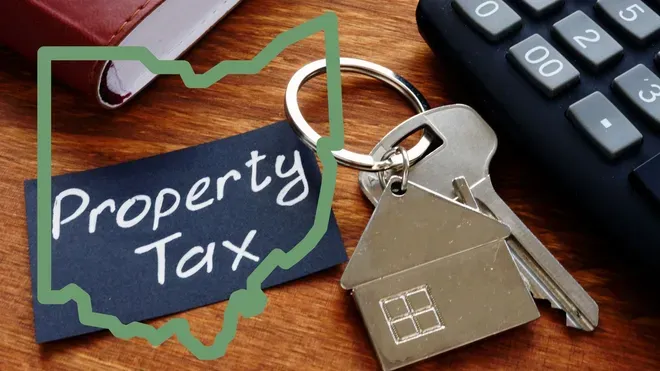COLUMBUS, Ohio — In Ohio, where soaring real estate prices are choking homeowners, Republican lawmakers have introduced an ambitious plan promising $3.5 billion in tax relief — the largest tax cut in the state's history. Bill H.B. 335, proposed by Representatives David Thomas and Bill Romer, is positioned as a lifeline for people like Debra Weigandt from Akron, whose taxes rose 30% after the latest property reassessment. However, behind this promise lies a painful compromise: schools already suffering from underfunding could lose $1.5 billion, jeopardizing education for thousands of children.
"It's not just a tax hike; it's felt like a financial heart attack," said Ed Livenhua, a resident of Lake County, whose tax bill sharply increased last summer. Similar stories are heard across Ohio, where the post-pandemic real estate boom has led to an average property value increase of 30–37% in counties like Butler, Montgomery, and Green. For many homeowners, especially retirees and middle-income families, these increases have become an unbearable burden, prompting legislators to act.
H.B. 335, known as the "Immediate Property Tax Relief Act," offers a radical solution: abolishing the so-called "internal tax" — a mechanism that allows school districts to automatically receive more revenue as property values increase. "We want property owners to feel real relief, not see their taxes rise with the market," said Thomas, a former auditor of Ashtabula County, whom the Republican leadership has chosen to champion the reform. He estimates that the average homeowner will save $850 annually if their home is assessed at the median value.
The Cost of Relief
But for school districts relying on property taxes for 50% of their budgets, H.B. 335 is a financial disaster. Charles Smialek, superintendent of Parma City Schools, called the bill "a blow to the very heart of education." He said that losing $1.5 billion would leave schools without resources to sustain basic services. "How can we educate children when we have to cut teachers, close classrooms, and cancel sports and arts?" he asked.
Parma, like many other districts, is already fighting to survive. Since 2011, the district has not received new revenue from local taxes, having failed seven referenda attempts since 2018. "We have reached our limit," Smialek said. "This bill won't just complicate our work; it will make it impossible." According to Ohio Department of Education data, 486 of the state's 609 school districts have reserves exceeding the proposed 30% of their annual budgets and would be required to return those funds to taxpayers if H.B. 335 becomes law. For example, Columbus City Schools would need to find a way to allocate $139.5 million to comply with the new rules.
Republicans like Romer argue that schools can save money by consolidating services or merging with other districts. "We want to start serious conversations about efficiency," he said, hinting at possible school district mergers in rural areas. However, critics, including Democratic representative Braid Rose Swini, call this a "sham reform" that only provides temporary relief for homeowners while creating a long-term crisis for education. "This is a one-time transfer of funds that doesn't address systemic problems," Swini noted.
The Broader Context
H.B. 335 is part of a broader fight over tax reform in Ohio, where the school funding system—deemed unconstitutional by the state's Supreme Court in 1997—still relies heavily on local property taxes. About 611 school districts in the state collected $13 billion in property taxes in 2023–2024, but this system perpetuates inequality: wealthy districts thrive, while poorer districts like Parma struggle to make ends meet. The bipartisan Fair School Funding Plan, adopted in 2021, aimed to address this, but its implementation is slowed by a $1.8 billion shortfall needed for full funding.
Meanwhile, pressure on lawmakers is mounting. The civic group Citizens for Property Tax Reform has gathered 1,800 signatures to amend the constitution to fully abolish property taxes, which could devastate funding for schools, libraries, and local services. "This is our last resort," said group spokeswoman Bet Blackmar. "We, especially seniors, can't afford to pay anymore." Although experts like Senator Bill Blesing warn that abolishing property taxes could lead to a "loss of $22 billion in revenue," the initiative reflects deep voter frustration.
The Political Game
H.B. 335, currently under consideration in the Ohio Senate, is just one of 19 property tax bills floating around, indicating a political fever pitch around this issue. House Speaker Matt Huffman called the reform "dramatic and necessary," but acknowledged that a compromise with the Senate, which increased the reserve limit for schools to 50%, would be challenging. Governor Mike DeWine, whose budget doesn't include such radical changes, expressed caution, stating that "education is the state's primary responsibility."
For homeowners like Weigandt, who feels that "everything is getting more expensive," the promise of $3.5 billion in relief sounds like a lifesaver. But for teachers, students, and parents witnessing their schools lose resources, it sounds like a verdict. As Ohio balances between tax relief for payers and protecting education, one question remains unanswered: can the state afford to sacrifice the future of its children for immediate relief?



